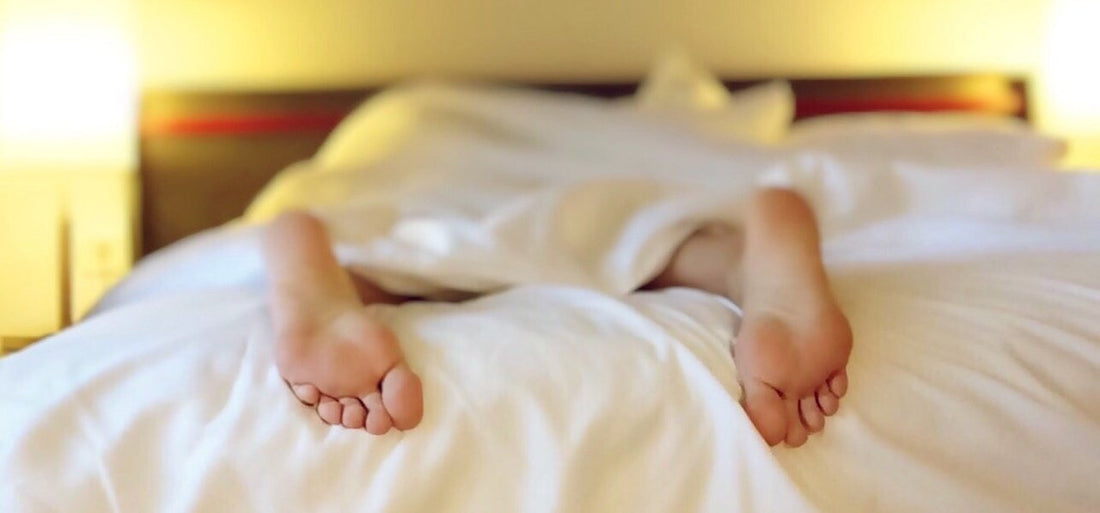We’ve all been there. You’re trying to get a good night’s sleep, but you can’t stop thinking about what you have to do the next day. Maybe you had caffeine a bit too late and are still feeling its effects, or maybe you just wanted to watch one more episode on Netflix but it somehow turned into three.
Lack of sleep can leave you feeling groggy and grouchy, making your day more stressful. But lack of sleep affects weight gain as well. By contrast, getting enough sleep is a very simple weight loss component.
There are a few ways that skimping on sleep affects weight gain. One way is through the molecular processes in your brain and the way your brain’s reward system works. Another is the effect it has on your motivation, your ability to make good decisions and, by extension, your eating habits. Thankfully, there are plenty of natural cures for insomnia that can help you get more sleep.
Lack of Sleep Affects Weight on the Molecular Level
Doctors at the University of Chicago conducted a study to better understand the link between sleep deprivation and weight gain and it was later published in the March 2016 issue of Sleep. In the study, Dr. Erin Hanlon and Dr. Even Van Cauter discovered that sleep deprivation activates the body’s endocannabinoid (eCB) system, the same system that is activated by chemicals found in marijuana.
This system also influences your cravings for tasty foods. Put simply, lack of sleep makes you want to eat more calories and sugars to make up for the lack of energy you’re experiencing. When triggered, the eCB system makes you hungrier and more likely to eat comfort foods.
On another level, lack of sleep affects weight by triggering the same systems your body uses to deal with starvation. Some studies suggest that sleep deprivation actually increases the number of calories your body burns because you’re active and awake when you’d normally be sleeping. But this is only an initial effect. Chronic sleep deprivation causes the body to store more calories during the day to make up for the calorie deficit.
Lack of Sleep Affects Your Motivation
It should come as no surprise that losing sleep affects you negatively on a psychological level. People who don’t get enough regular sleep are generally less motivated, less productive, and have higher rates of mental health issues. In some cases, it could even lead to serious psychological problems.
From a simple weight loss perspective, losing sleep can have a detrimental effect on your motivation to exercise and eat well. You’ll be more likely to skip your regular exercise routine if you’re too tired. You’ll be more likely to abandon your healthy diet (if only temporarily) to get the instant gratification of coffee, candy, and sugary energy drinks.
How to Get More Sleep
Getting a consistent, healthy amount of sleep each night can reduce your cravings for unhealthy foods, help you feel full after meals, and make it easier to make simple weight loss choices. If you’re having trouble sleeping, here are some natural cures for insomnia that may be able to help.
Go to Bed Earlier
This advice may seem like a no-brainer, but you’d be surprised how often people choose to ignore it. Most sleep experts recommend we get between 8-10 hours of sleep each night. This doesn’t mean that you should start getting ready for bed at 11 pm if you need to wake up at 7 am, however. You need some time to do your bedtime routine and your mind needs time to wind down. If you’re usually still tired after a full 8 hours of sleep, try to get 9 or 10 hours instead.
Turn off the Smartphone
Multiple studies have shown that attempting to fall asleep after looking at the LED screen on a smartphone can make it more difficult, especially when you’re looking at it in the dark. Shining that bright light in your eyes is like telling your brain that the sun is rising. It slows down the production of melatonin, the hormone that tells your brain it’s time for sleep. Try putting your phone away about an hour before bed and reading a book instead.
Use White Noise
Some people fall asleep with a TV on, but that might lead to the same issues as using a smartphone before bed. If you need noise while you sleep, turn on a fan, an air conditioner, or a noise app on your phone. If you need complete silence when you sleep, use comfortable earplugs to block out outside noise.
Don’t Eat Too Late
If you typically eat a snack after dinner, pick something that doesn’t have too much sugar or fat (like celery!) and finish eating at least an hour before bed. Try having a cup of sleepyitime tea instead of a soda.
Sweet dreams!Ready to make a change in your life? Let's talk CLICK HERE


